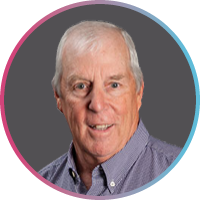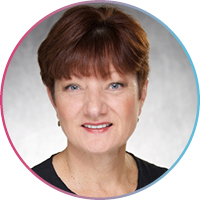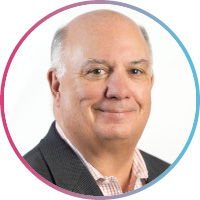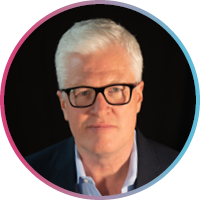- Membership & Community
-
Publications & News
- Physiology Journals
-
Newsroom
-
The Physiologist Magazine
- 2019
- 2020
- 2021
- 2022
- 2023
- 2024
-
In Depth
- In Depth—The Bear Necessities
- In Depth: Understanding Circadian Rhythms
- In Depth: Understanding Data
- In Depth: Exercise Physiology: Take Your Medicine at the Gym
- In Depth: Neurodegenerative Disorders
- Imaging Methods Unveil the Invisible
- Rewiring the Brain: Breakthroughs in Neural Therapy
- What’s Coming Next for GLP-1 and Metabolic Disease Treatment
- Understanding the Effects of Maternal Exercise
- How Muscles May Hold Cues to Better Sleep
- The Science Behind Breathwork and Mental Health
- How Science is Reframing Aging and Disease
-
Mentoring Forum
- Net Worth
- Take Care
- You … In Charge
- Work. It. Out.
- Working Off-site
- Location, Location, Location?
- Student Support
- Progressing to Postdoc
- Relationship Building
- Let’s Get It Started
- What Do We Value?
- It’s a Postdoc Life
- Coronavirus Contributions
- Creative Communications
- Selection Process
- Conference Connections
- Postdoc Appreciation
- Research Rewards
- Focus on Teaching
- Industry Insights
- Balance Beam
- Post Postdoc
- If You Build It
- Talk It Through
- Forward Bound
- I’ve Earned My PhD. Now What?
- University Life
- Tips for Trainees
- Time Travel
- Prepare Now for the Career You Want
- Landing a Postdoctoral Researcher Position
- Becoming a Physician-Scientist
- Mastering the Art of Science Communication
- Setting Yourself Up for Success in the Lab
- From Postdoc to Professor: Key Strategies for Success
- How to Stay Motivated in Challenging Times
- Staying Motivated Throughout Your Science Career
- Managing Stress and Workload During Your PhD
- Stay Passionate About Your Physiology Career
- Advice for Science Trainees in Uncertain Times
-
Policy IQ
- Policy IQ—2023 in Review: How APS Advocated on Behalf of Physiologists
- Policy IQ—Supporting Equitable Research
- NIH's Road Map to a Better Postdoc Experience
- The Career Path to Science Advocacy
- Culture of Safety: Stopping Sexual Misconduct
- Physiologists Return to Capitol Hill
- Tips for Scientists to Communicate about Animal Research
- Science Advocacy in a New Political Landscape
- Tips for Making the Call to Congress
- Science Spending Is an Investment
- Advocacy Up Close and Personal
- How Animal Research Advances Physiology and Medicine
- 5 Ways Physiologists Advocated for Science in a Challenging Year
-
Publish with Polish
- Publish with Polish
- The Layers of Open Science
- Take Your Content From Meeting to Manuscript
- APS Journals to Highlight Women’s Health Research
- What Subscribe to Open Means for APS Members
- The 5 Pillars of Publish with Purpose
- 3 Types of Metadata Researchers Should Know About
- Navigating Open Access and New Licensing Options
- Journal Manuscript Prep Made Easy
- How to Navigate Public Access Requirements
- Ensuring Public Trust in Publishing
- Improve Your Scientific Figures With APS and BioRender
- How APS Subscribe to Open Supports Accessible Research
-
Under the Microscope
- Equine Inspiration
- Inquiring Minds
- The Power of Teaching
- The Love of Physiology
- Understanding Women's Physiology Across the Lifespan
- Studying Human Health in Extreme Environments
- Advancing Kidney Health and Physiology Research
- How Gut Microbes Shape Blood Pressure and Drug Response
- Battling Malaria
- Exploring the Microbiome
- From Physics to Physiology: A Scientist's Unconventional Journey
- Finding Meaning in Exercise Physiology and Healthy Aging
- Mentoring Q&A
- Evolution
- Baseline by Scott Steen, CAE, FASAE
- 2025
- 2026
- Find Us on Social Media
-
The Physiologist Magazine
-
Professional Development
-
Meetings & Events
-
American Physiology Summit
- #APS2024 Overview
- Abstracts
- Awards at the Summit
- Award Lectures
- Career Networking Lunch Form
- Dates and Deadlines
- Advocate for Health Research Funding
- Hotel Information
- International Travel Information for Summit Attendees
- Industry Partners
- Mobile App
- NIH and NSF Program Officer Panel Discussion Form
- Physical Poster Information
- American Physiology Summit PhysioHub
- Pre-Summit Events
- Registration
- Section & Group Banquet Tickets
- Social Events
- Speaker Audiovisual Instructions
- Summit FAQs
- Travel & Transportation
- Undergraduate Program Book
- Liability Waiver
- Industry Partners
- Joseph Erlanger: Pioneering Nerve Research and APS Leadership
- 2023
- 2024
- Scientific Integrity Policy
- Exhibitor Registration Form
- Keynote Speaker Tracy L. Bale, PhD
- Keynote Speaker Jennifer Lippincott-Schwartz, PhD
- Career Day Workshop: Own Your Path, Positioning for the Career That Fits You
- From Concept to Classroom
- New Trends in Sex Differences and Women’s Health Research
- Control of Renal Function in Health and Disease
- Comparative Physiology Conference
- Webinars
- Future APS Conferences
- Conference Policies
-
American Physiology Summit
- APS Awards
-
Career & Professional Development
-
Career Gateway
-
Resources
- Transcript—Leading Through Conflict and Difficult Conversations
- Transcript—Managing Conflict with Colleagues
- Transcript—Leading a Team Through Conflict
- Transcript—Providing Difficult Feedback
- Transcript—Team Dynamics and Culture Primer
- Transcript—Building a Team
- Transcript—Leading a Team Assigned to You
- Transcript—Creating a Team Culture
-
Resources
- Career Navigator
- Center for Physiology Education
- Virtual Courses
- Physiology Job Board
- APS Graduate Physiology & Biomedical Science Catalog
-
Career Gateway
-
Meetings & Events
-
Advocacy & Resources
- Science Policy
-
Resources
- Researcher Resources
- Educator Resources
- Trainee Resources
- Student Resources
-
APS Graduate Physiology & Biomedical Science Catalog
- Des Moines University
- George Washington University
- Michigan State University
- New York Medical College
- Nova Southeastern University
- Pennsylvania State University
- Texas A&M University
- Texas A&M University Medical Physiology
- University of Alabama at Birmingham
- University at Buffalo
- University of Colorado
- University of Michigan
- University of Minnesota
- University of Missouri-Pathobiology and Integrative Biomedical Sciences
- University of Nebraska Medical Center
- University of Nevada, Reno
- University of South Carolina School of Medicine
- University of Tennessee Health Science Center (UTHSC)
- University of Texas Health Science Center
- Virginia Commonwealth University
- Wayne State University
- Physiology Department Catalog Submission Form
- Boston University
- Career Gateway
- Major Initiatives
- About APS
APS is governed by an elected Board of Directors. The Board includes the president, the immediate past president, and president-elect, each serving a one-year term. The treasurer serves a three-year term. One member is selected by the Advisory Council for a one-year term, with an option to renew for a second year. In addition, nine elected board members serve staggered three-year terms, with three members rotating off the Board each year. Newly elected officers begin their terms at the end of the Society’s annual meeting each spring. The Society’s CEO serves as the Board’s secretary and is a non-voting ex-officio board member.
The Board meets three times a year: at the Society’s annual meeting in the spring, following the society leadership retreat in the summer, and in the fall. Between meetings, the executive committee (president, president-elect, immediate past president, treasurer and secretary/CEO) meets on an ad hoc basis to review and implement policies.
2025 APS Board of Directors
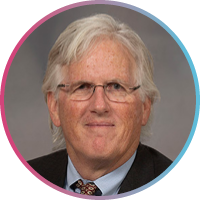 Robert L. Hester, PhD, FAPS
Robert L. Hester, PhD, FAPS
President
University of Mississippi Medical Center
Robert L. Hester, PhD, FAPS, is the Billy S. Guyton Distinguished Professor and a professor of physiology at the University of Mississippi Medical Center. Hester has served APS as past chair of the Joint Programming Committee and the Cardiovascular Section. He has been a member of the Section Advisory, Education and Science Policy committees and was chair of the Experimental Biology Board. Hester is an associate editor of the American Journal of Physiology-Heart and Circulatory Physiology and a section editor of Comprehensive Physiology. His current research is focused on computer simulation of integrative physiology.
Timothy Musch, PhD, FAPS, FACSM
Immediate Past President
Kansas State University
Timothy Musch, PhD, FAPS, FACSM, is a University Distinguished Professor in the Departments of Kinesiology and Anatomy & Physiology at Kansas State University. Musch has served APS as councilor, chair of the Animal Care & Experimentation Committee and the Committee on Committees, and as a member of the Public Affairs, Education, Fellows, Membership, Nominating, Section Advisory and Strategic Planning committees. He is on the editorial boards of the Journal of Applied Physiology and the American Journal of Physiology-Heart and Circulatory Physiology. Musch was the Guyton Educator of the Year in 2013.
Sue C. Bodine, PhD, FAPS, FIUPS
President-elect
Oklahoma Medical Research Foundation
Sue Bodine, PhD, is a professor in the Aging and Metabolism Research Program at the Oklahoma Medical Research Foundation and a research biologist at the Oklahoma City VA Medical Center. Bodine was awarded the APS Environmental and Exercise Physiology Section’s Edward F. Adolph Distinguished Lectureship in 2019 and the Section's Honor Award in 2021. She has served as editor-in-chief of the Journal of Applied Physiology and as associate editor for the American Journal of Physiology-Endocrinology and Metabolism and the American Journal of Physiology-Cell Physiology. Bodine is an executive editor for Function and on the editorial board of Physiological Reviews.
Paul Welling, MD
Treasurer
Johns Hopkins University School of Medicine
Paul Welling, MD, is the Joseph S. and Esther Handler Professor at Johns Hopkins University School of Medicine in Baltimore. He is renowned for his research on molecular underpinnings of potassium-sodium balance, electrolyte disorders and hypertension. Welling is a Fellow of the American Heart Association, the American Association for the Advancement of Science and the Association of American Physicians. He has served in numerous leadership roles, including two terms as chair of the Society's Finance Committee and chair of the Epithelial Transport Interest Group Steering Committee.
Scott Steen, CAE, FASAE
Secretary and Chief Executive Officer
American Physiological Society
Scott Steen, CAE, FASAE, was appointed as the executive director of the American Physiological Society in 2018 and named CEO in 2024. Previously, Steen led the American Ceramic Society, a science and engineering society, and American Forests. Steen has also served as chief strategy officer at the American Society of Association Executives (ASAE), and chief operating officer of the Center for Association Leadership. He is a Certified Association Executive (CAE), a fellow of ASAE.
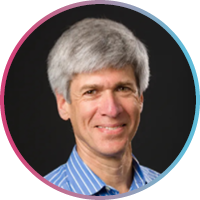 Michael Caplan, MD, PhD, FAPS
Michael Caplan, MD, PhD, FAPS
Board Member
Yale University School of Medicine
Michael Caplan, MD, PhD, FAPS, is the C.N.H. Long Professor and chair of the Department of Cellular and Molecular Physiology at the Yale University School of Medicine. He earned his MD and PhD degrees from Yale University. Caplan has been honored with awards for his work in renal physiology from numerous organizations, including APS, the American Society of Nephrology and the National Science Foundation. Caplan is editor-in-chief of the journal Physiology and is a member of the Physiology Summit Leadership Committee.
 Robert A. Fenton, PhD
Robert A. Fenton, PhD
Board Member
Aarhus University, Denmark
Robert Fenton, PhD, received his degree in physiology from the University of Manchester in the United Kingdom and completed his postdoctoral training at the National Institutes of Health in the U.S. He is a professor at Aarhus University, Denmark. Fenton is internationally recognized as a leader in kidney pathophysiology and epithelial cell biology with his interdisciplinary research sitting at the interface between basic and clinical science. Fenton has published 210 peer-reviewed articles and 15 textbook chapters, leading to over 13,000 citations and an h-index of 66. He has mentored over 80 researchers and is a strong advocate for training the next generation of physiologists.
 Karla Haack, PhD
Karla Haack, PhD
Board Member
Merck
Karla Haack, PhD, is a medical writer at Merck & Co., where she collaboratively authors pre-approval regulatory documents. Prior to joining Merck in 2021, she taught anatomy and physiology and pathophysiology courses at Kennesaw State University (KSU) in Georgia. She earned her PhD in molecular biology from Georgia Institute of Technology and completed postdoctoral research at the University of Nebraska Medical Center. Haack was a member of the College of Science and Mathematics Inclusion and Diversity Committee and liaison to the chief diversity officer at KSU. She has served as chair of the APS Diversity, Equity & Inclusion Committee.
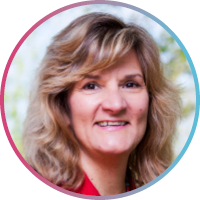 Patricia A. Halpin, PhD, FAPS
Patricia A. Halpin, PhD, FAPS
Board Member
University of New Hampshire
Patricia A. Halpin, PhD, FAPS, is a professor of biology and biotechnology at the University of New Hampshire. She was trained as a renal physiologist and is now an education researcher. She served on the Center for Physiology Education Advisory Board. Halpin is also a member and past chair of the Teaching of Physiology Section. An early adopter of online learning, she uses face-to-face, online and blended modalities to teach a variety of courses.
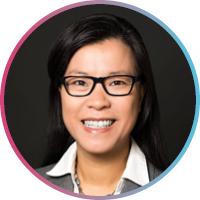 My Helms, PhD
My Helms, PhD
Board Member
University of Utah
My Helms, PhD, is an associate professor with tenure at the University of Utah pursuing mechanistic studies in epithelial transport biology. She is chair of the Cell and Molecular Physiology Section Postdoctoral Review Committee. Helms is also a member of Cell Section’s Research Host Contact List, Social Media Admins and Summit-CAMPS committees. She is the past chair of the Cell & Molecular Physiology Section Steering Committee. Helms mentors the next generation of scientists to become independent investigators.
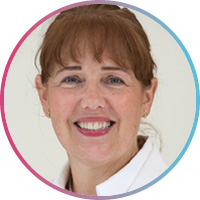 Kathleen (Katie) S. Hering-Smith, PhD
Kathleen (Katie) S. Hering-Smith, PhD
Advisory Council Representative
Tulane University School of Medicine
Katie Hering-Smith, MS, PhD, is an associate professor at Tulane School of Medicine’s Department of Physiology. She has mentored students in her lab along with teaching physiology to graduate and medical students. She has served as the secretary, chair and is the past chair of the Renal Section Steering Committee. In addition to serving on the APS Advisory Council, Hering-Smith is on the editorial board of the American Journal of Physiology-Renal Physiology and is the chair of the APS Section Advisory Committee.
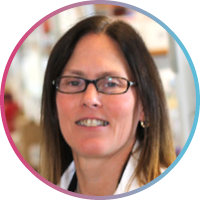 Beth A. McCormick, PhD
Beth A. McCormick, PhD
Board Member
UMass Chan Medical School
Beth McCormick, PhD, is a professor and chair of the Department of Microbiology and Physiological Systems at UMass Chan Medical School. McCormick is an internationally renowned gastrointestinal physiologist and has been an active participant in APS activities for nearly 20 years. She has served as secretary-treasurer of the APS Gastrointestinal & Liver Physiology Section, an editorial board member for the American Journal of Physiology-Gastrointestinal and Liver Physiology, and an organizer of plenary sessions at APS conferences. She was the 2023 Gastrointestinal & Liver Physiology Section Distinguished Lecturer.
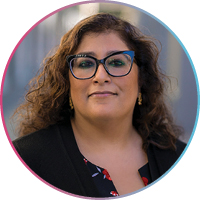 Farah Sheikh, PhD, FCVS, FAHA
Farah Sheikh, PhD, FCVS, FAHA
Board Member
University of California San Diego
Farah Sheikh, PhD, is a professor at the University of California San Diego (UCSD). As an accomplished cardiovascular physiologist, she has launched multiple biotech startups, translating groundbreaking discoveries from bench to bedside. Her research interests focus on genetic cardiac disease and gene therapy. Sheikh is director of UCSD’s Biomedical Sciences Graduate Program and serves as a Health Science Faculty Equity advisor. She has also served in leadership roles within the American Heart Association and APS.
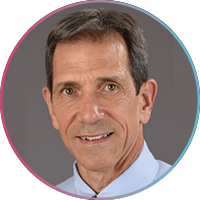 Michael Sturek, MS, PhD, FAPS
Michael Sturek, MS, PhD, FAPS
Board Member
CorVus Biomedical, LLC and CorVus Foundation
Mike Sturek, MS, PhD, FAPS, is chief scientific officer at CorVus Biomedical, LLC. He also holds adjunct professor positions in biomedical engineering at Purdue University and in preclinical physiology and molecular imaging at the University of Southern Denmark. Previously, he was in academia for 35 years, rising from assistant professor of physiology at the University of Missouri to department chair at Indiana University. Sturek has been an APS member for 42 years.
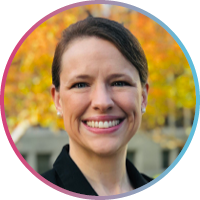 Gina Yosten, PhD
Gina Yosten, PhD
Board Member
Missouri University of Science and Technology
Gina Yosten, PhD, is adjunct professor in pharmacology and physiology and Kummer Endowed Professor and Chair of Biological Sciences at Missouri S&T. She is a longtime APS member and has served the Society in multiple capacities, including as the chair of the Endocrinology & Metabolism Section and a member of the Section Advisory and Joint Program committees. Yosten was the Society’s 2023 Henry Pickering Bowditch Award Lecturer.


